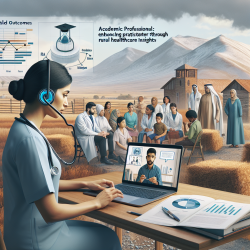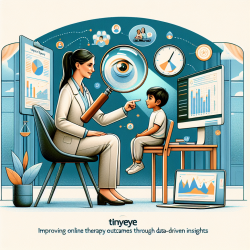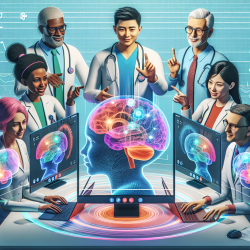Unlocking the Potential of Biological Cooperation in Therapy
As a dedicated speech-language pathologist, you are always seeking ways to improve the outcomes for the children you serve. The research article "Evolution of Biological Cooperation: An Algorithmic Approach" offers intriguing insights that can be leveraged to enhance therapeutic practices. By understanding the principles of biological cooperation, practitioners can foster environments that encourage cooperation, leading to better therapeutic outcomes.
The Complexity Barrier in Evolution
The research highlights a critical concept known as the "adaptivity barrier." This barrier arises when organisms face multiple environmental constraints, making it exponentially challenging to adapt through random mutations alone. This complexity is a significant hurdle in evolutionary biology, but cooperation emerges as a powerful strategy to overcome it.
Cooperation as a Strategy
The study suggests that when faced with numerous constraints, organisms naturally gravitate towards cooperation as a means to divide labor and enhance survival chances. This principle can be translated into therapeutic settings, where collaborative efforts among practitioners, children, and their families can lead to more effective interventions.
Applying Cooperation in Therapy
In practice, fostering cooperation means creating a supportive environment where therapists, parents, and children work together towards common goals. This collaborative approach can help overcome the complexity barriers that often impede progress in therapy. By leveraging the strengths and resources of each participant, therapy can become more adaptive and responsive to the child's needs.
Data-Driven Decisions in Therapy
Incorporating data-driven strategies into therapy is another way to enhance cooperation and outcomes. By utilizing data to inform decisions, therapists can tailor interventions to meet the specific needs of each child, ensuring that resources are used efficiently and effectively. This approach aligns with the principles outlined in the research, where data and algorithmic models guide the evolution of cooperation.
Encouraging Further Research
While the research provides a foundational understanding of cooperation, it also opens the door for further exploration. Practitioners are encouraged to delve deeper into the principles of biological cooperation and consider how these concepts can be applied to their specific therapeutic contexts. By staying informed and open to new ideas, therapists can continue to improve their practice and outcomes for children.
To read the original research paper, please follow this link: Evolution of biological cooperation: an algorithmic approach.










